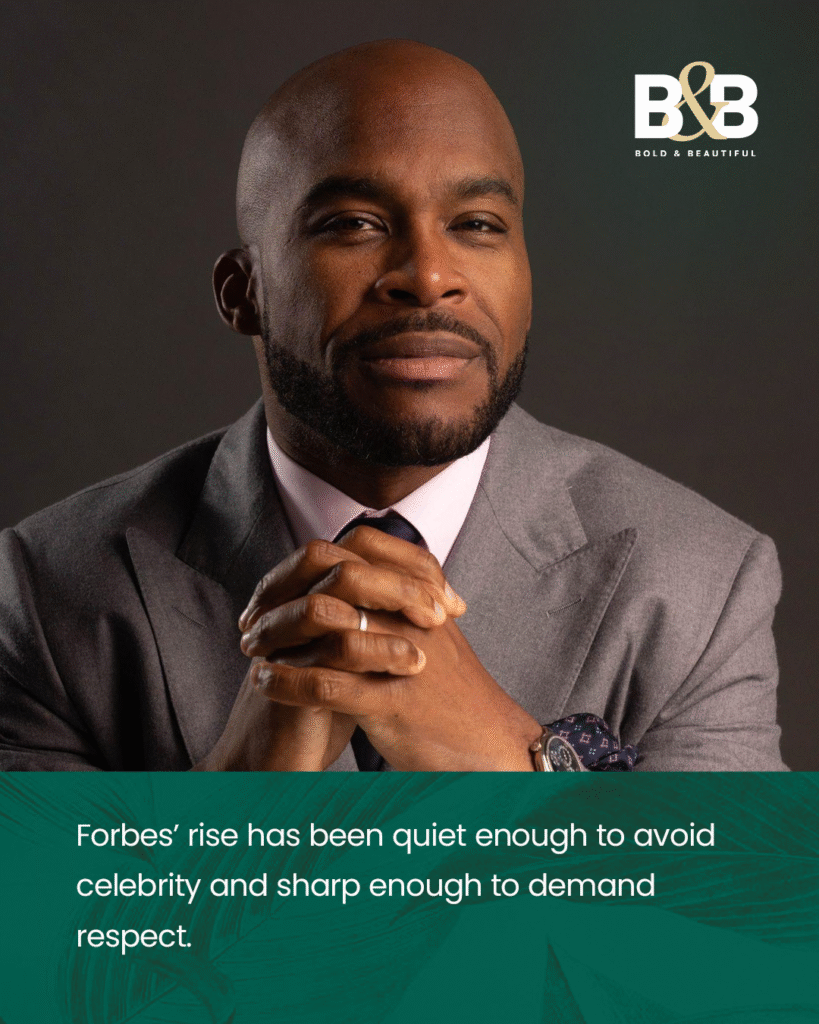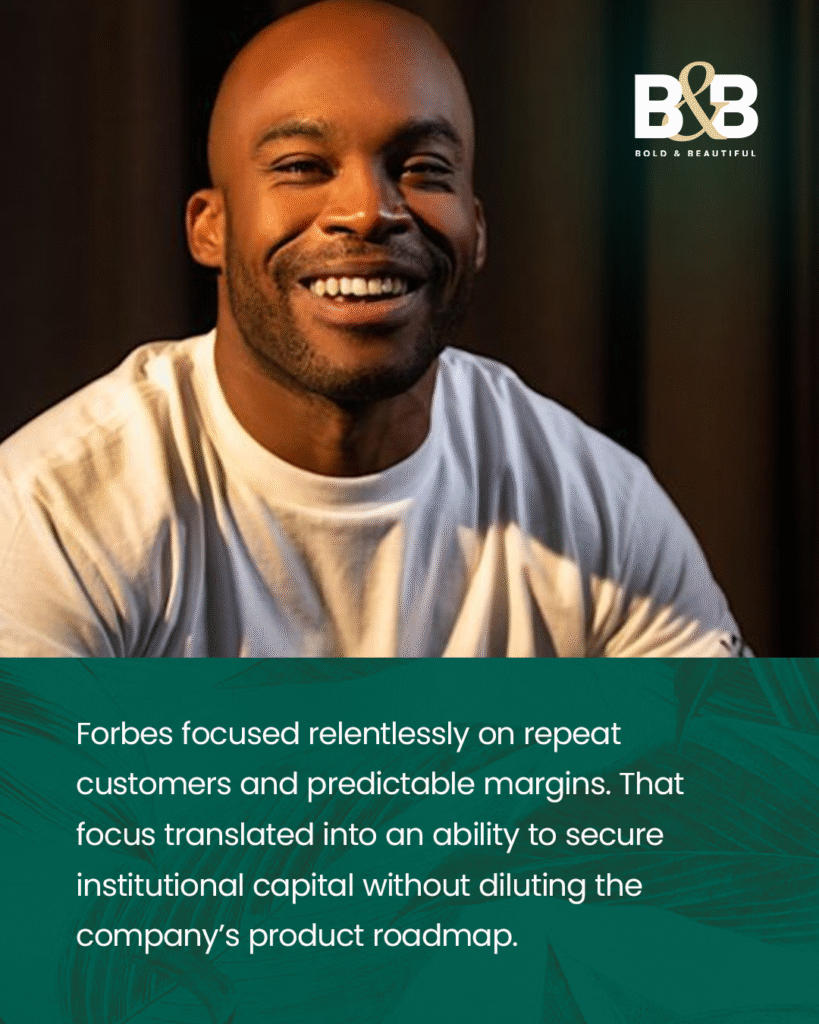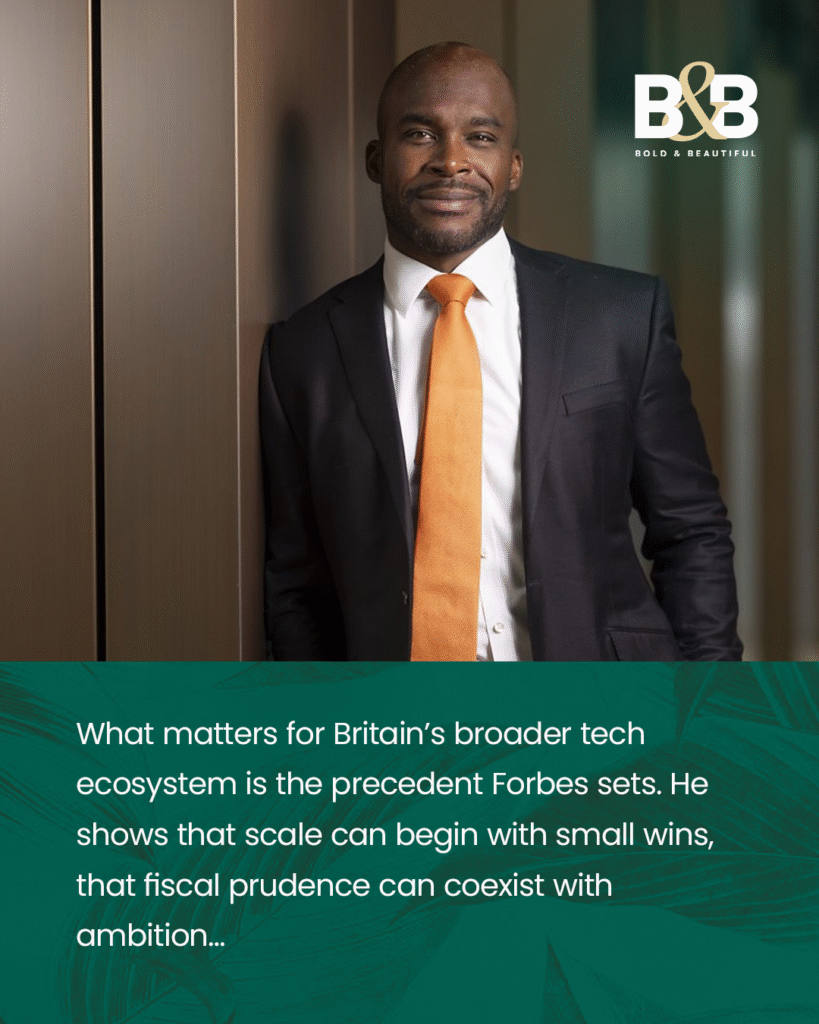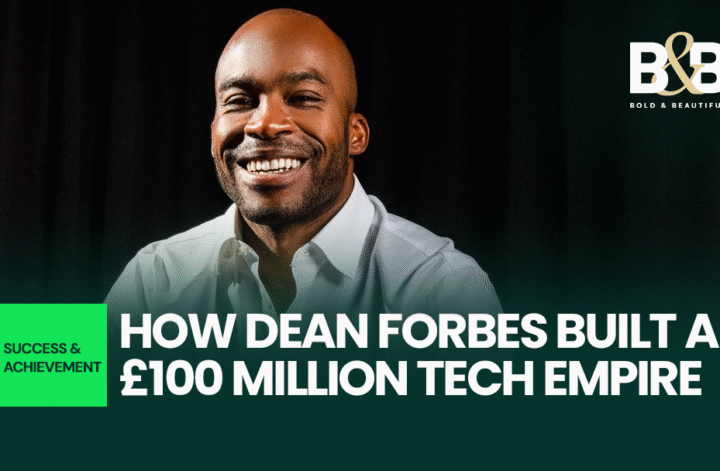Dean Forbes started with nothing more than a backpack and a resolve to survive. He spent a period sleeping on London streets and sofa surfing in South London. Today he sits at the head of a technology group valued at over £100 million and counts influence in Britain’s tech and business circles among his assets.

Forbes’ rise has been quiet enough to avoid celebrity and sharp enough to demand respect. He arrived in the sector the way many founders do, by solving a problem he knew at a granular level. The product that scaled into the company now backing dozens of employees began life as a pragmatic tool, built around cash flow and customer needs rather than hype.
His route to that first product was not linear. Homelessness meant that time and resources were scarce. He used public libraries, community centres and late shifts to learn fundamentals and to test ideas. The discipline forged in that period shaped how he runs his business: low waste, fast iteration and an insistence on revenue before scale.

Investors noticed because the numbers made sense. Forbes focused relentlessly on repeat customers and predictable margins. That focus translated into an ability to secure institutional capital without diluting the company’s product roadmap. With funding in place, the business expanded from a London base into several international markets within a few years.
Leadership, for Forbes, is a practice of accountability. Former colleagues describe a CEO who insists on transparency about mistakes, who makes himself available to junior staff, and who tracks operational metrics personally. He rewards long-term contributors with equity and opportunity rather than short-term perks. That approach has kept churn low and morale high in a sector where both can be fragile.
His story has a civic side. Forbes has been involved with community initiatives that support training for young people from deprived areas. He takes part in mentorship networks and has helped set up bursaries to fund short technical courses. His name appears increasingly on panels and advisory boards where access to capital and talent pipelines are debated.

Forbes’ influence stems from more than his company’s valuation. He represents a model that challenges common narratives about success in tech. He demonstrates that founders who begin outside elite networks can build businesses that attract serious capital and deliver jobs. That example reverberates across south London and beyond, where founders often struggle to translate ideas into sustainable firms.
Critics point out structural obstacles that persist. Access to scale capital remains uneven. Networks of introductions still matter. Forbes acknowledges those barriers and uses his platform to open doors for others. He has been deliberate about staffing decisions, pushing for hires from non-traditional backgrounds and emphasising apprenticeship-style training internally.
The company’s product roadmap continues to broaden. Strategic acquisitions have added capability without breaking the culture that led to early wins. Management keeps a tight grip on margins while experimenting with adjacent services. That balance between discipline and selective risk has helped the business navigate market cycles that felled many peers.
Personal life for Forbes is intentionally private. He avoids noise and keeps a small circle of confidants. Public appearances are measured and usually tied to causes he supports. Friends and collaborators describe someone who is driven but methodical, who plans years ahead while tending to today’s operational details.
What matters for Britain’s broader tech ecosystem is the precedent Forbes sets. He shows that scale can begin with small wins, that fiscal prudence can coexist with ambition, and that leadership shaped by hardship can translate into companies that create stable careers. Investors and policy makers take note when business models combine growth with responsible talent development.
For all the accolades and the valuation, Forbes remains engaged in the day-to-day work of building. He still reviews key product metrics every morning and spends time each week with customer support teams. That habit keeps him grounded and ensures the company’s strategy remains connected to the people who pay for the product.
The next chapter for Forbes will test how the company sustains culture through rapid growth and how his model influences wider change in the sector. If the past decade offers a guide, his pattern will be steady execution, selective partnerships and continued investment in people from the same communities that helped shape him.




